QuestionWe have a baby rabbit and a couple of days ago his back legs just seem to have stopped working. He is eating and drinking fine, his eyes look clear and he is happy to try to move around. He can even get out of his cage by himself he simply drags his back legs around. What do you think may be the problem? Oh, he also seems to be weeing a bit more than usual.
AnswerHi Mark
one of two things could be wrong. Depending on the age of the rabbit it may have had a congenital defect known as splay legs and the change in flooring could have made it worse. If he is in a plastic cage with the slippery type floor you can try putting down a non-plastic bathmat to see if he can get traction. I am attaching a web-site about splay legs.
www.bio.miami.edu/hare/splayleg.html
My deeper concern is that he may have broken a spine bone and spinal cord injury.
a rabbit has a very fragile backbone. If the rabbit is not handled properly it can leap out of your arms and break it's back. It can also break a leg by making contact with a hard surface when it is struggling. If the rabbit injures its back, it can suffer paralysis in one or both back legs. See a vet about this. A rabbit can have a good life even as a disabled bunny. Euthanasia doesn't have to be your last resort alternative in this case.
You really need to take the rabbit to a veterinarian to determine the cause. The weeing more often to me suggests a spinal cord injury. The vet can take Xray's to determine the probably outcome.
If you need help finding an exotic pet vet in your area please go to the following site:
http://www.rabbit.org/vets/vets.html
It is hard to say what is wrong with him without an xray. He may have just damaged nerves, muscles, etc. Since he is eating and drinking fine he seems to be having a happy life even though he might end up with a disability.
Please let me know if you need anymore help. Sorry I couldn't come up with a definitive diagnosis.
Pam

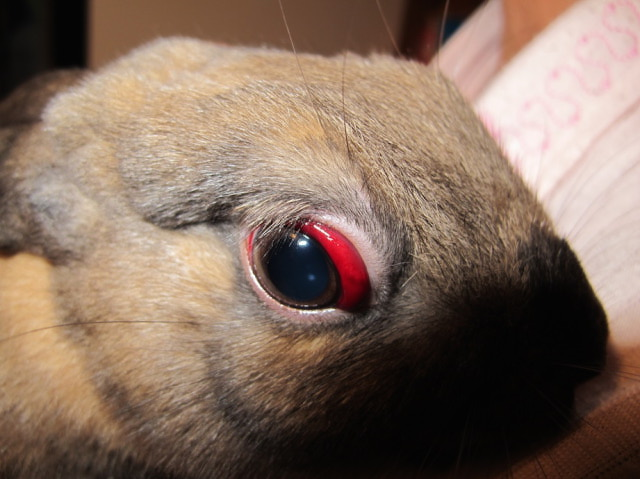 Bloody eyes dwarf rabbit
Question
Jasmin1 Jasmin2
Hello, doctor,
I
Bloody eyes dwarf rabbit
Question
Jasmin1 Jasmin2
Hello, doctor,
I
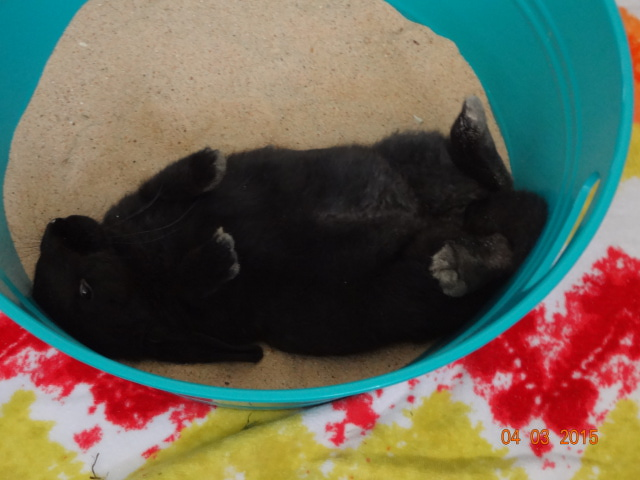 Hard Stomach
Question
Her in Sand :)
Short version: My rabbit
Hard Stomach
Question
Her in Sand :)
Short version: My rabbit
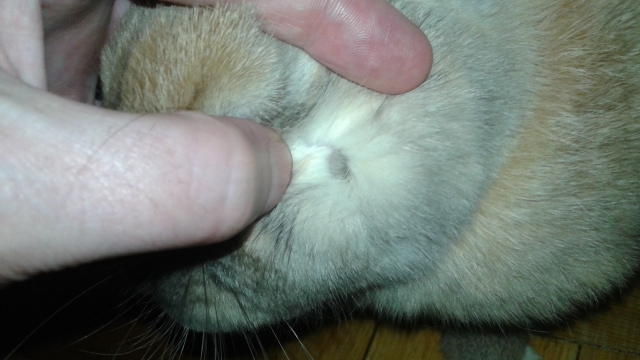 black spots on Boos face
Question
boos face
I recently noticed some lumps
black spots on Boos face
Question
boos face
I recently noticed some lumps
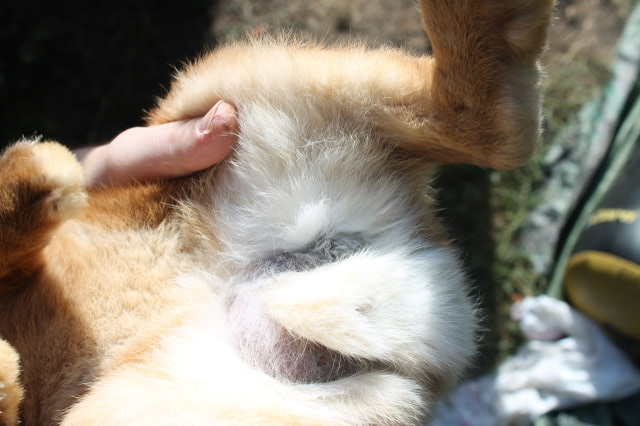 swollen testicle
Question
rabbit testicle
My rabbit has a swollen
swollen testicle
Question
rabbit testicle
My rabbit has a swollen
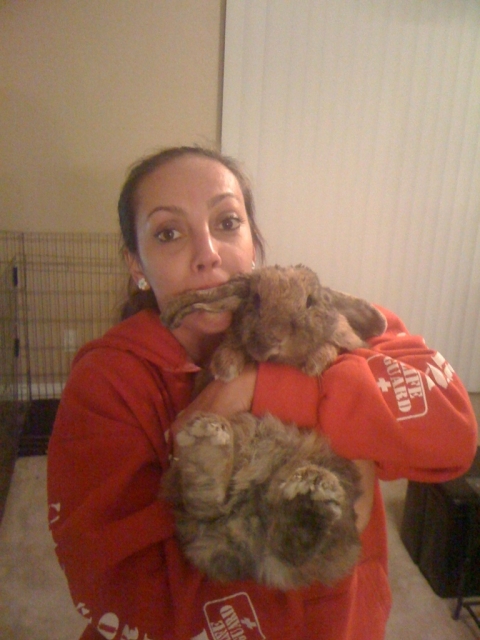 Holland lop rabbit 7.5 years sudden death
Question
Dora and Mommy
Hello, My dear Rabbit Dora, pas
Holland lop rabbit 7.5 years sudden death
Question
Dora and Mommy
Hello, My dear Rabbit Dora, pas